Advocates should not be responsible for communication during court hearings
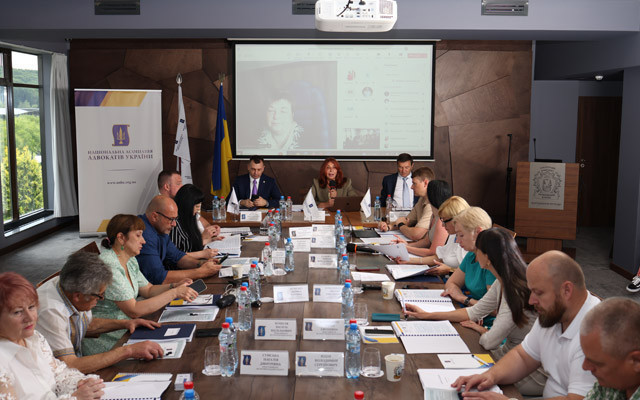
In the context of permanent blackouts and instability of telecommunication equipment, lawyers and other participants in court cases should not be responsible for the risks of technical impossibility of participating in a videoconference during a court hearing.
During the meeting on June 7, the members of the Bar Council of Ukraine analyzed the provisions of the Regulation on the Procedure for the Functioning of Certain Subsystems (Modules) of the Unified Judicial Information and Telecommunication System, approved by the decision of the HCJ of 17.08.2021 No. 1845/0/15-21, and drew attention to its clause 46.
According to the current version, if the court has the technical capability, a party to the case may participate in a court hearing via videoconference outside the court premises using its own technical means in accordance with the procedure established by the procedural law.
It was also established that the risks of technical impossibility of participating in a videoconference outside the courtroom, interruption of communication, etc. are borne by the party to the case who submitted the relevant application.
In this regard, the participants of the meeting recalled the decision of the BCU of November 16-17, 2022, No. 148 «On the validity of the reasons for the absence of a lawyer from a court hearing, investigative actions, etc. during martial law».
At that time, the Council pointed out that the rules of the procedural codes provide for the possibility of participation of participants in the case in a court hearing via video conference. However, due to missile strikes on critical and civilian infrastructure, shopping and business centers, and residential buildings, there are power outages, emergency and planned power outages, which undoubtedly affects the quality or lack of communication.
Force majeure circumstances, including military events and other similar circumstances, are considered to be one of the valid reasons for a person's failure to respond to a call. Therefore, there are sufficient grounds to believe that the circumstances related to the introduction of martial law, including the loss of Internet connection or electricity during participation in a videoconference, are force majeure circumstances, which is a valid reason for the failure of advocates to appear at court hearings, investigative actions, pre-trial investigation bodies, administrative jurisdiction, etc.
Therefore, in the opinion of the UNBA members, the provision of clause 46 of the Regulation on the risks of technical impossibility of participation in a videoconference should be removed from the Regulation.
The UNBA's appeal will be sent to the High Council of Justice.
It should be reminded that the UJITS video conferencing subsystem provides:
1) video and audio recording of court hearings, booking (reservation) of courtrooms, the possibility for the parties to the case to submit documents (including procedural documents, written and electronic evidence, etc.) during the court hearing via videoconference;
2) the possibility for users to participate in meetings of other bodies and institutions of the justice system via videoconference.
In order to participate in a court hearing via videoconference, a party to the case must first register in the Electronic Cabinet. The party to the case must also check his/her own technical means for compliance with the technical requirements set forth in the User Manual of the videoconferencing subsystem for working with the system.
Popular news

Discussion
Why lowering the age of marriage lacks legal logic
Although until 2012 there was a provision in family law that allowed children to marry from the age of 14 under certain circumstances, its return to Ukrainian law would contradict international obligations and the logic of criminal law.

Self-government
A report on Ukrainian advocacy was presented in the European Parliament
Can a shadow report on advocacy replace the political framework of the Roadmap on the rule of law with demands for the restructuring of self-government? Where is the line between accountability and the seizure of institutions? And how can we respond to narratives with data rather than impressions?
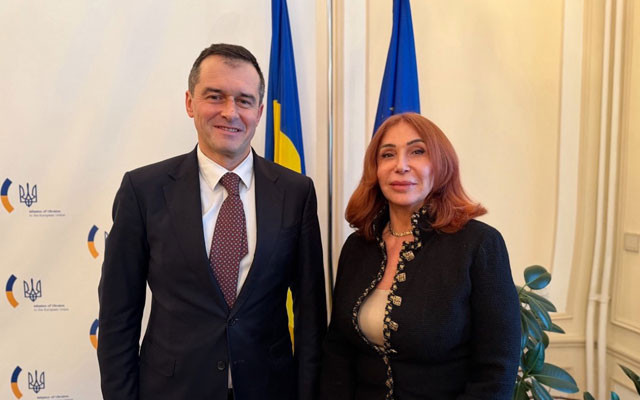
European integration
UNBA and Ukraine's representation to the EU have synchronized their priorities
On February 5, in Brussels, the President of the UNBA, BCU Lidiya Izovitova held a working meeting with the Ambassador Extraordinary and Plenipotentiary of Ukraine, Representative of Ukraine to the European Union Vsevolod Chentsov.
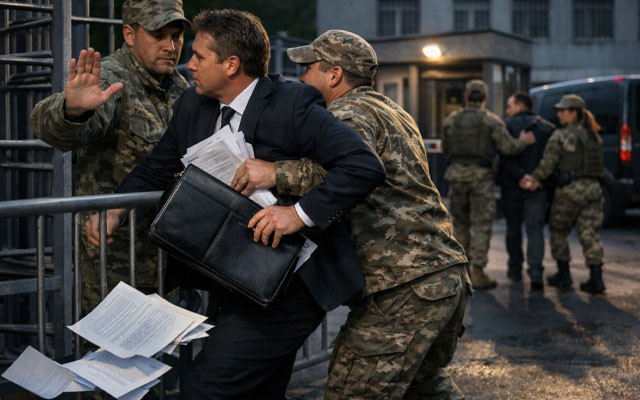
Guarantees of the practice of law
Proceedings opened following attack on advocate in Dnipro
The Committee for the protection of advocates' rights and guarantees of legal practice of the UNBA appealed to law enforcement agencies in connection with an advocate's report of an attack while performing his professional duties. The information was entered into the Unified Register of Pre-trial Investigations and a pre-trial investigation was initiated.
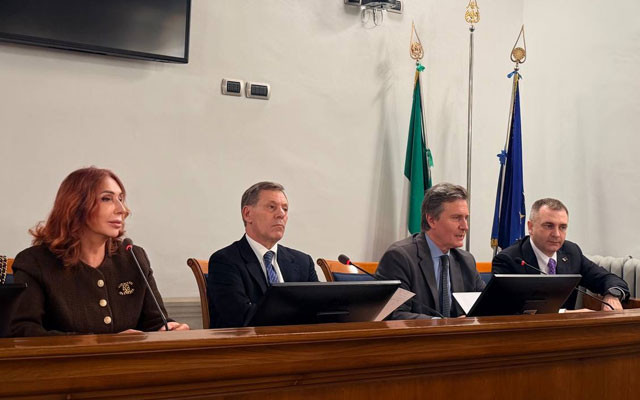
Interaction
«With us — to Europe»: Italian advocacy supports UNBA initiatives
On January 30, a meeting was held in Rome between a delegation from the Ukrainian National Bar Association and the National Bar Council of Italy (Consiglio Nazionale Forense, CNF) on the standards and practices of the legal profession and their significance for Ukraine's European integration process.
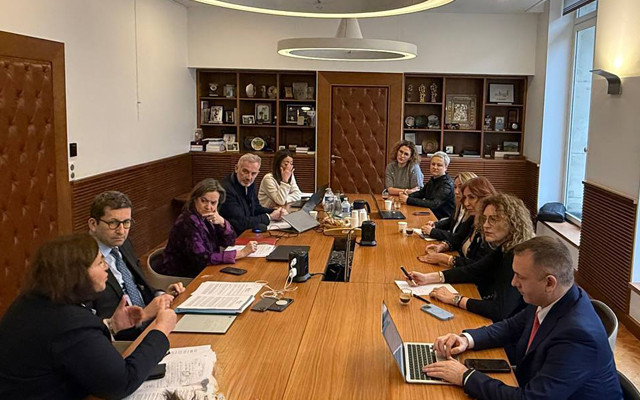
Interaction
France confirms cooperation with UNBA on reforms in the field of the rule of law
On January 29, a working meeting between representatives of the Ukrainian National Bar Association and the French National Bar Council (Conseil National des Barreaux, CNB) took place in Paris.
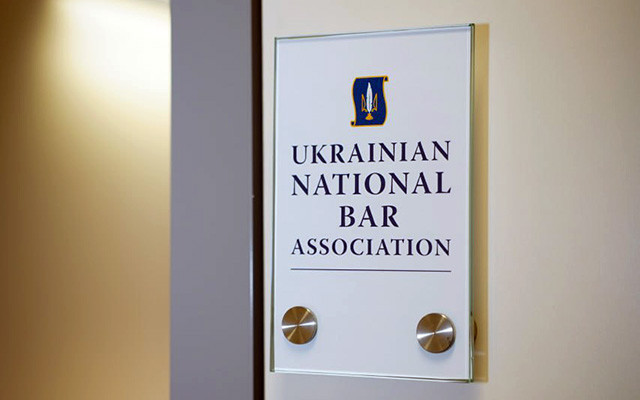
Abroad
UNBA office opens in EU capital
To strengthen the institutional presence of the Ukrainian advocacy community at the European level, an office of the Ukrainian National Bar Association has been opened in Brussels (Belgium), which will serve as a permanent platform for dialogue with European partners.
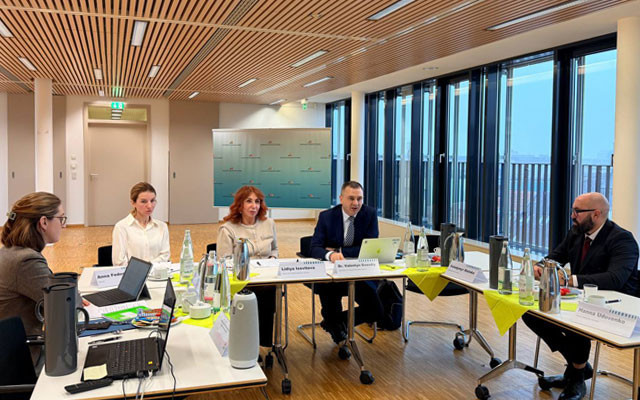
Interaction
UNBA and BRAK discussed European integration priorities and regulation of the profession
On January 26, a meeting was held between representatives of the Ukrainian National Bar Association and the German Federal Bar Association (Bundesrechtsanwaltskammer, BRAK).
Publications

Volodymyr Matsko Extradition as a systemic form of rights violations

Victoria Yakusha, Law and Business The anti-corruption vertical cannot «take care» of the Bar as an institution, - acting head of the HQDCB

Censor.net Protecting advocates – protecting justice: addressing concerns about the new law

Ihor Kolesnykov A BRIEF SUMMARY REGARDING THE APPLICATION OF THE ORDER ON EXTENDED CONFISCATION IN LATVIA REGARDING FINANCIAL ASSETS OF…

Valentyn Gvozdiy WORKING IN A WAR ZONE

Lydia Izovitova Formula of perfection

Sergiy Vylkov Our judicial system is so built that courts do not trust advocates

Iryna Vasylyk Advocacy in the proclamation of Independence of Ukraine
